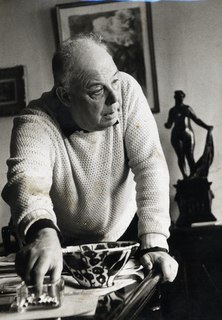A Quote by Allen Tate
How does one happen to write a poem: where does it come from? That is the question asked by the psychologists or the geneticists of poetry.
Related Quotes
The question does arise if how and why to write poetry in this time. It feels both completely essential and also quite difficult. But that's how writing poetry has felt to me my whole life. Everything seems to have just gotten immensely more mortal and tragic and scary, which makes it hard to concentrate, but also, if harnessed, can provide immense energy for making poems.
Truly fine poetry must be read aloud. A good poem does not allow itself to be read in a low voice or silently. If we can read it silently, it is not a valid poem: a poem demands pronunciation. Poetry always remembers that it was an oral art before it was a written art. It remembers that it was first song.
That's one of those questions that would just love to have a pat answer. You know, poetry's job is to make us feel good. Poetry exists to allow us to express our innermost feelings. There isn't one role for poetry in society. There are many roles for poetry. I wrote a poem to seduce my wife. I wrote a poem when I asked her to marry me. Poetry got me laid. Poetry got me married.
A successful poem says what a poet wants to say, and more, with particular finality. The remarks he makes about his poems are incidental when the poem is good, or embarrassing or absurd when it is bad and he is not permitted to say how the good poem is good, and may never know how the bad poem is bad. It is better to write about other people's poetry.
The Divine Comedy is a political poem and when you say poetry is not about - he's always quoted out of context, that "poetry makes nothing happen," that doesn't mean you shrug your shoulders and don't try to make anything happen. And Dante felt that poetry was engaged, there was a point of view; it's not my point of view, it's orthodox medieval Christianity, and I have my troubles with that. He didn't feel that you could just rule out so important a section of life - we care about these things, and it's out of caring about them that we write poetry.
The poem is not, as someone put it, deflective of entry. But the real question is, 'What happens to the reader once he or she gets inside the poem?' That's the real question for me, is getting the reader into the poem and then taking the reader somewhere, because I think of poetry as a kind of form of travel writing.
To the question, ‘Is the cinema an art?’ my answer is, ‘what does it matter?’... You can make films or you can cultivate a garden. Both have as much claim to being called an art as a poem by Verlaine or a painting by Delacroix… Art is ‘making.’ The art of poetry is the art of making poetry. The art of love is the art of making love... My father never talked to me about art. He could not bear the word.
Because of my experience in Occupy, instead of asking the question, "Who will benefit from this system I'm implementing with the data?" I started to ask the question, "What will happen to the most vulnerable?" Or "Who is going to lose under this system? How will this affect the worst-off person?" Which is a very different question from "How does this improve certain people's lives?"






































